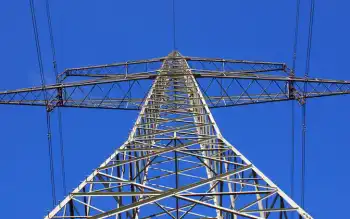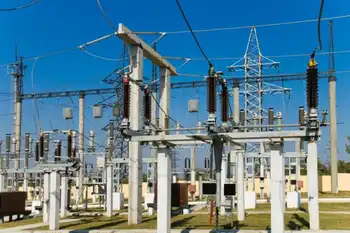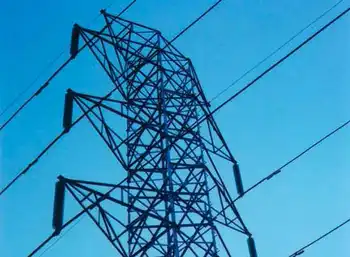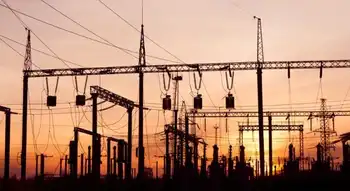Austerity pulling the plug on green subsidies
By Globe and Mail
CSA Z462 Arc Flash Training
Our customized live online or in‑person group training can be delivered to your staff at your location.

- Live Online
- 6 hours Instructor-led
- Group Training Available
Austerity-whacked Europe is rolling back subsidies for renewable energy as economic sanity makes a tentative comeback. Green energy is becoming unaffordable and may cost as many jobs as it creates. But the real victims are the investors who bought into the dream of endless, clean energy financed by the taxpayer. They forgot that governments often change their minds.
Spain is famous for its housing bubble, whose bursting drove the national unemployment rate to 20 per cent-plus. Less well known is the renewable energy bubble, inflated by a government bent on shaking down the taxpayer to subsidize clean energy — a social program disguised as a politically correct industrial program.
It worked. Sunny Spain became the world's top solar power producer. Since 2002, about €23-billion has been invested in Spain's photovoltaic PV industry, which sucked up €2.7-billion in subsidies in 2009 alone, or more than 40 per cent of the freebies doled out to the country's entire renewables sector.
When the Spanish economy went into the toilet in 2008 and 2009, austerity measures were put into place. At first, it appeared the solar industry would be spared the worst of the cutbacks. That changed a bit, but only a bit, in November, when a royal decree reduced tariffs by up to 45 per cent on new PV plants existing plants would remain untouched. Then — whammo! — a new royal decree landed with a thud just before Christmas. While it didn't change the tariff, it retroactively limited the number of production hours that PV plants could qualify for the subsidies.
Spain's solar industry lobby group, the Asociacion Empresarial Fotovoltaica, estimated that the second decree would effectively reduce tariffs received by PV plants by 30 per cent, forcing many of the PV companies to default on their debt. Infrastructure Investor magazine called the second decree "the Christmas Eve massacre."
Other European countries are also taking a long, hard look at their renewable energy sector and wondering whether it's affordable. In December, the French government unveiled a plan for a three-month moratorium on new solar projects that are eligible for subsidized tariffs. The goal was to prevent a speculative PV bubble while it mulls new regulations for renewable energy.
There is no doubt the replacement regime will be less generous. CRE, the independent regulator of the French energy and natural gas markets, recently estimated that taxes on electricity would have to almost triple to meet the rising costs of renewable energy. The question, of course, is whether rising energy taxes could kill more jobs than those created by renewable energy expansion.
Germany is scaling back subsidies, too, and revealed another reduction a few days ago to households that generate electricity with their own solar panels. In the United States, where the incentives generally come in the form of tax credits instead of subsidized tariffs, the appetite for long-term support seems to be waning, partly because of the natural gas glut. Ditto in Canada. In Ontario last year, the average price for power was 3.7 cents per kilowatt hour. The feed-in tariff for solar installations ranged from 44 cents to 80 cents, that is, up to 20 times the market rate. Ontario revised that higher end of the range downward to 64.2 cents last summer. Watch the next Ontario government drain the renewable energy slush fund.
Renewable energy is fraught with difficulties. In less-sunny climates, PV panels make little sense, though that hasn't stopped Germany and Britain from installing them on rooftops everywhere. Wind power is becoming hugely popular in some parts of the world. But since the wind doesn't always blow, backup power has to be installed. That means consumers have to pay for the capacity twice and the backup power is usually of the fossil-fuel variety. Denmark, which has a reputation as the cleanest of the clean countries, actually generates about half its electricity from coal, the grubbiest fuel. That proportion hasn't varied in a decade in spite of the country's relentless pursuit of wind power.
The austerity programs have piled on additional difficulties in the form of subsidy reductions. No government would announce "temporary" subsidies, for fear of scaring off investment in renewable energy. Still, that's exactly what the subsidies are turning out to be. Investors everywhere are going to get slaughtered as debt-swamped governments trim or eliminate the freebies. The ailing share prices of renewable energy companies such as Spain's Iberdrola Renovables gives you an idea of the waning investor sentiment.
The renewable energy bubble was inflated by government subsidies. Those same governments are now deflating them. Turns out the subsidies were too good to be true.











